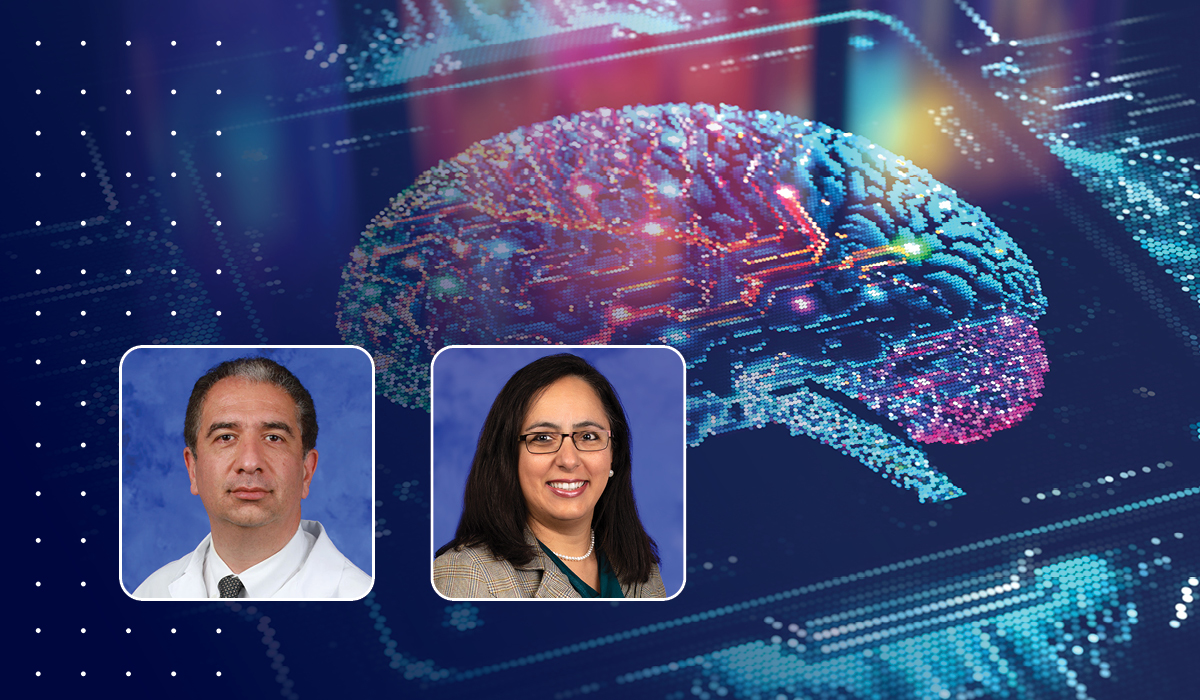College of Medicine leads NIH grant investigating the use of artificial intelligence to improve outcomes for stroke patients

Researchers at Penn State College of Medicine were awarded more than $2 million by the National Institute of Neurological Disorders and Stroke to develop a multi-center validated artificial intelligence-based model to predict the mortality and reoccurrence of ischemic stroke for enhancing secondary prevention.
“Stroke is the leading cause of death and disability worldwide. It has been estimated that the 1-year risk of death and recurrence after a stroke is around 15% and 10%, respectively,” said Primary Investigator and stroke neurologist Ramin Zand, MD.
A recent report from the Global Burden of Disease has shown a substantial increase in the annual number of strokes and secondary deaths, especially in low-income groups.
“An increasing trend is that recurrent strokes have a higher rate of death and disability. It is imperative to identify at-risk patients for recurrence and death for proper and timely evaluation, resource allocation, and targeted prevention.,” said Primary Investigator Vida Abedi, PhD. “We are looking forward to working with our partners in using clinical data to improve health outcomes for their patients.”
The four-year grant will seek to expand and improve predictive models through the creative use of vetted electronic health records data for ischemic stroke patients. By partnering with two additional health systems and universities in both urban and rural areas, Geisinger, Johns Hopkins, and the University of Memphis, they will explore how social determinants of health impact the clinical data for more than eight million people.
The investigators have three main goals outlined:
- Standardize electronic health records-based data across health care centers to identify clusters of ischemic stroke patients with common traits;
- Develop optimal interpretable ensemble models to predict 1-year mortality and recurrence after an ischemic stroke;
- Validate, prospectively and externally, ensemble models for 1-year mortality and stroke recurrence.
The College of Medicine, with its sister health system, Penn State Health, is uniquely situated at the intersection of health and technology. Together, the academic health system is positioned to lead the development of artificial intelligence to produce cutting-edge scientific discoveries and better clinical outcomes.
“Penn State College of Medicine is poised to succeed in the revolution of artificial intelligence,” said Dean Karen Kim, MD. “With our extensive data resources and outstanding faculty expertise, we are reimagining biomedical research. As Pennsylvania’s only rurally located academic health system and the commonwealth’s only land-grant university, we are using data to improve the lives of our community members. For those with limited access to health care, establishing predictive models are lifesaving treatment measures.”
If you're having trouble accessing this content, or would like it in another format, please email Penn State Health Marketing & Communications.
